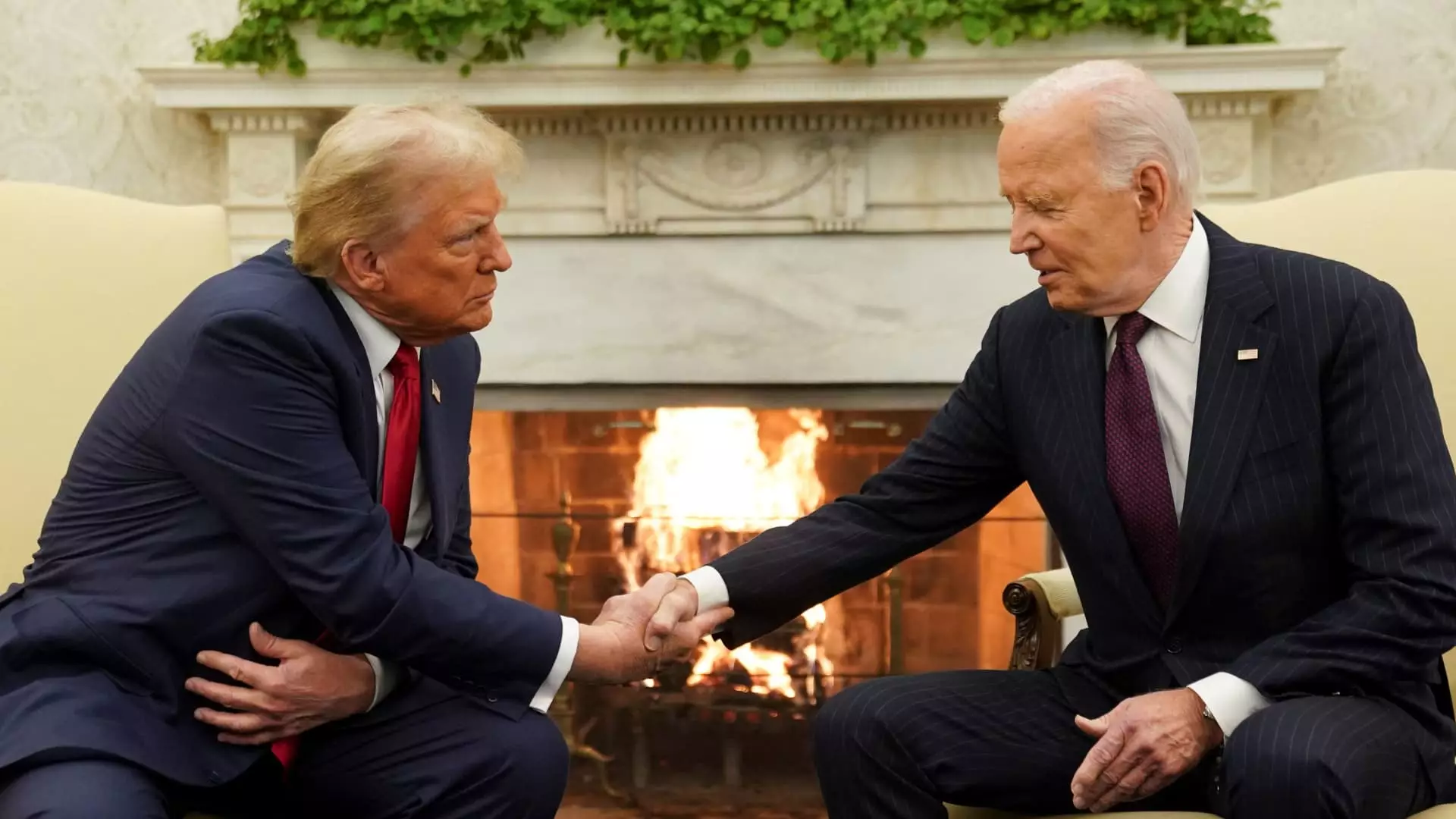Investors regularly seek patterns in stock market behavior surrounding pivotal events, such as presidential elections. The primary focus often lies in understanding if these electoral shifts yield favorable or adverse market conditions. However, insight gained from historical data suggests that such predictions remain elusive.
The examination of previous presidential elections reveals no consensus on how the stock market responds. For instance, following President Joe Biden’s election in 2020, the S&P 500 experienced a remarkable surge, climbing over 42% in just one year. This data, influenced by research from Morningstar Direct, highlights that while certain elections heralded market booms, others resulted in downturns. Notably, after Jimmy Carter’s win against Gerald Ford, the S&P 500 plunged approximately 6% in the following year. Similarly, Dwight Eisenhower’s second victory also correlated with a significant dip in the market.
Yet, contrasting trends are evident as well. For example, during Ronald Reagan’s first election, the S&P 500 saw a modest increase of 0.6%, which escalated to around 19% following his reelection. This fluctuation showcases the market’s ambiguous connection to election outcomes, suggesting that many factors intertwine to influence stock valuations beyond mere political changes.
As investors grapple with the uncertainties elections introduce, they often dream up narratives designed to predict future market movements. Jude Boudreaux, a certified financial planner, points out that these narratives may not provide a reliable foundation for decision-making. He indicates that the performance of the stock market during election years often mirrors non-election years, emphasizing that randomness prevails in market trends.
Moreover, Dan Kemp, the global chief investment officer at Morningstar Investment Management, reinforces the notion that the need for solid predictions during uncertain periods can lead investors to alter their portfolios unnecessarily. Such reactions, based on transient information, could ultimately yield the opposite of the desired effect, destabilizing a well-thought-out investment strategy.
In light of these observations, a reevaluation of investment approaches appears prudent. Instead of making drastic shifts tied to election cycles, investors are encouraged to adopt a long-term perspective that focuses on fundamental metrics of their investments rather than external political shifts. Crafting a diversified portfolio and maintaining a strategic focus on investment goals may offer more stability than trying to time the market based on political outcomes.
While the allure of political events influencing market trajectories is compelling, historical evidence suggests unpredictability persists. This uncertainty makes it essential for investors to remain cautious, resist the temptation to chase trends, and adhere to sound financial principles in the face of fluctuating political landscapes. The key takeaway is that short-term market swings influenced by elections may not warrant broad, hurried changes in investment strategies. Instead, patience and conviction in one’s financial plan often reap the most rewards.

